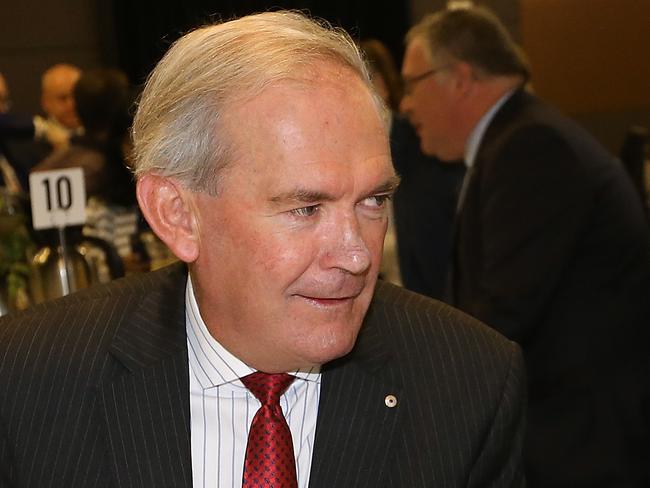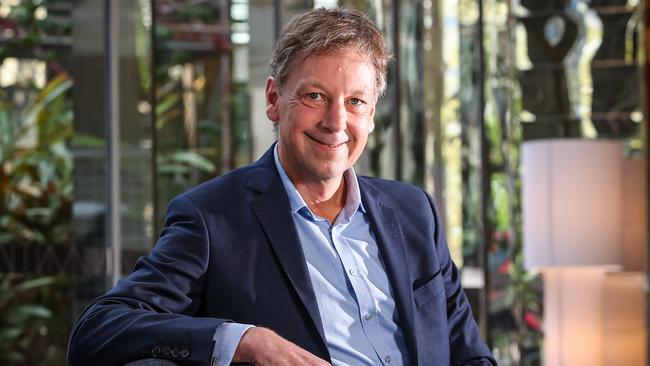
Australian shareholders contacted on Wednesday applauded Thompson and Michael L’Estrange’s decisions to fall in their swords in the wake of the tragedy but said the egregious payouts to the accountable executives remain a big worry.
Thompson said the snafu was “a clear breach of our values as a company “ and then boss JS Jacques quit last September with an effective departure date of the end of this month. The delay shows why Thompson has also pushed back his departure until after the annual meeting to provide some continuity.
Rio Tinto is due to have its next annual meeting in London in April and Australia in May and judging by Wednesday’s reaction the remuneration report and handouts to the effectively sacked executives will face certain rejection.
Former boss JS Jacques is due to receive $28m in stock which is based on half his allowance in share rights as that is how Rio Tinto tends to account for the likely payout subject of course to meeting the right hurdles.
Former iron ore boss Chris Salisbury and former corporate affairs boss Simone Niven are due to received $11.4 million and $9.6 million respectively on the same basis.

In the case of all three having been shown the door for governance snafu over Juukan these payouts are simply egregious and should be rejected.
There is a clear case for more change at board level but with a new chair in place then she will have the chance to shuffle the deck.
This said L’Estrange and Thompson have both done the right thing by agreeing not to stand for re-election, with Thompson to hang around until a replacement is found.
While the company said ill-health is the reason for L’Estrange’s departure his name was top of the list of many shareholders as being the first board member to face the chop after a whitewashing report on Juukan Gorge last year.
That and the company’s initial reaction to blowing up 46,000 years of history was what upset shareholders on top of the actual management of the process which allowed it to happen.
Thompson is to be commended for his stance with the former Anglo American executive making it clear he is taking responsibility for the tragedy.
Independent directors Sam Laidlaw and Simon McKeon have the task of selecting a new chair and there will be obvious pressure to find an Australian willing to take on the role.

New boss Jakob Stausholm is in Australia until May giving him time to make himself known and to get to know where 90 per cent of the company’s money is made.
He would be hoping the director departures would be seen as the final leg of the accountability after the company has shown the executives the door and bent over backwards to mend relations with the traditional owners.
His lengthy tour has included doing the rounds in Canberra seeing the relevant ministers to explain the company’s behaviour and new game plan and importantly meeting the former CRA bosses including Leigh Clifford, Leon Davis, John Ralph and Sir Rod Carnegie.
All four ran either CRA or Rio Tinto or both at a time when it was at the top of its game as both the best mine operators who also excelled in meeting community expectations.
Stausholm was keen to learn their secrets.
He would also be keen to capture some past glory because the worry post-Juukan is the miner is too conservative and doesn’t take enough risks to help grow the company.
The right balance is the secret sauce.
This week’s decision against the Resolution Copper joint venture with BHP in Arizona highlights the governance concerns facing Rio Tinto at a time when China is both a customer and competitor.
Running a mile from Greensill
Bundaberg’s Lex Greensill business is by all reports teetering on collapse and according to the Wall Street Journal his business valued at $US4bn ($5.1bn) two years ago could change hands at $US100m with Apollo the reported potential buyer.
That is for the good bits of the reverse factoring business so questions are raised about the circa $US2bn in loans to Sanjeev Gupta.
Reverse factoring is simply supply chain financing in which the supplier reduces working capital by financing the sale and getting paid immediately.
The business on paper is not rocket science.
When Gupta had a beauty parade in Australia a few weeks back there was a noticeable lack of interest from some big name houses on the street and in the end then financial backer Credit Suisse was the nominated lead.
UBS and JP Morgan reportedly had a look.
Now Credit Suisse and everyone else is running a million miles from Greensill.
Noticeably the Wall Street Journal said in a recent report “given its relative size, Greensill is unlikely to cause widespread disruption in the financial world, though it could cause problems for its customers as they look for alternative forms of short-term financing.”
Its main financial backers are SoftBank and Credit Suisse and Gupta is a key client along with the likes of Astra Zeneca and Ford but the latter two may be in the same camp as Telstra which hasn’t done a lot with Greensill for two years.
The Gupta camp say the Australian float is still on and given he has circa $US600m invested in Whyalla which means floating the non-steel works assets maybe a necessity.
The proceeds would be used to pay down the Whyalla debt.
Sims calls for unfair trade practices law
ACCC chief Rod Sims has used a Monash University speech to back his calls for an unfair trading practice prohibition clause to be included in the law
“I am convinced that such a prohibition would remove or avoid the need for some intrusive industry-specific regulation. That is, it can help lessen the overall regulatory burden,” he said.
Sims also urged changed to the merger laws noting “we believe that merger parties and the courts are focused on what is likely to happen in the future without the acquisition, which is
challenging to ‘prove’ in court.”
“It appears that insufficient weight is placed on the risks to competition, such as potential competition being lost, barriers to entry raised or competitors being foreclosed. As a result, our merger control regime is skewed towards clearance, which presents real challenges for our economy given the damage that can be done by anti competitive mergers,” he added.
The speech was to commemorate the tenth anniversary of the consumer law being unified as part of the old Trade Practices Act.
Sims said “the key change made when the (Australian Consumer Law) was introduced, in my view, was the introduction of civil pecuniary penalties for consumer law contraventions and infringement notices”.
In the last 10 years the ACCC has won $400m in fines compared to the $5m imposed the 25 years before the law was changed.
The ACCC has also issued 281 infringement notices against 140 companies.
The ACCC has had more success in prosecuting the consumer provisions than in competition law cases and Sims’ record against big companies from VW to Telstra to Coles and others is impressive.




Rio chair Simon Thompson has now ticked most of the boxes in accountability over the Juukan Gorge tragedy with the notable exception of the $49.7 million in Rio Tinto shares going to three ousted executives.